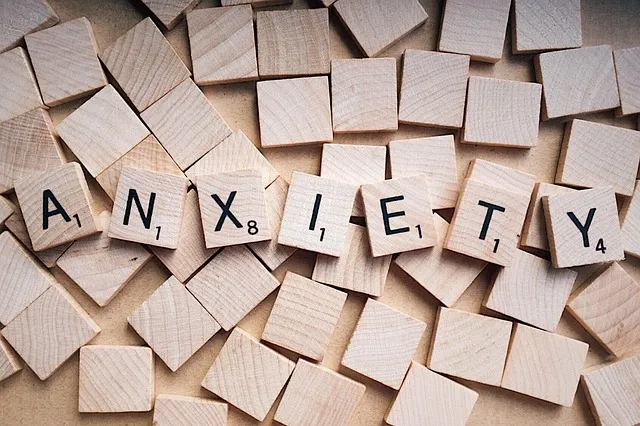Kaiser Permanente Centennial prioritizes healthcare provider well-being by offering a comprehensive mental health support network, including access to licensed therapists, workshops, and mindfulness practices. They aim to address burnout, promote resilience, and enhance job satisfaction through various initiatives, ensuring effective workload management and stress reduction strategies for medical professionals. Their holistic approach integrates mental health services into benefits, fostering a supportive work environment and encouraging open communication among staff.
Healthcare provider burnout is a growing concern, impacting patient care and organizational success. This article explores strategies to prevent burnout among medical professionals, focusing on mental health support, workload management, self-care practices, and fostering resilient work cultures. As evidenced by Kaiser Permanente’s initiatives at their Centennial location, offering comprehensive mental health services can significantly mitigate burnout. Discover effective approaches to enhance healthcare provider well-being and improve overall organizational resilience.
- Understanding Burnout in Healthcare Providers
- Mental Health Support Systems at Kaiser Permanente Centennial
- Workload Management Strategies for Medical Professionals
- Self-Care Practices to Prevent Burnout
- Creating a Culture of Resilience and Support
Understanding Burnout in Healthcare Providers

Healthcare provider burnout is a growing concern within the industry, impacting not only individual well-being but also patient care and organizational performance. Burnout often manifests as emotional exhaustion, depersonalization, and reduced personal accomplishment, leading to decreased job satisfaction and potential risks to mental health. This phenomenon is particularly prevalent among medical professionals, given the demanding nature of their work, long hours, and high-pressure environments.
At Kaiser Permanente, recognizing the importance of mental wellness, they offer various resources to support their healthcare providers. This includes access to mental health services in Centennial, as well as Mental Wellness Coaching Programs designed to enhance resilience and coping mechanisms. Additionally, conflict resolution techniques training can help professionals navigate challenging situations, while regular risk assessments for mental health professionals ensure early identification of potential burnout triggers, fostering a proactive approach to maintaining a healthy work-life balance.
Mental Health Support Systems at Kaiser Permanente Centennial

Kaiser Permanente Centennial recognizes the profound impact that mental health has on healthcare provider well-being and patient care. As such, they offer a robust network of mental health support systems designed to address burnout and promote resilience among their workforce. This includes access to licensed therapists, counselors, and psychologists who provide individual and group therapy sessions tailored to meet the unique needs of healthcare providers.
Beyond traditional therapy, Kaiser Permanente encourages the use of empathy building strategies and compassion cultivation practices. Through workshops, seminars, and ongoing training programs, healthcare professionals are equipped with skills to foster deeper connections with patients and colleagues, enhancing job satisfaction and reducing stress. Additionally, they emphasize Healthcare Provider Cultural Competency Training, ensuring staff members can navigate diverse patient populations with sensitivity and understanding, further enriching their professional experiences.
Workload Management Strategies for Medical Professionals

Healthcare providers often face overwhelming workloads, which can significantly contribute to burnout. To combat this, Kaiser Permanente Centennial offers several effective workload management strategies. One key approach is prioritizing tasks and setting realistic goals to prevent feeling submerged by responsibilities. Medical professionals can also leverage tools for time blocking and scheduling, ensuring dedicated blocks for various duties, including mental health services, to maintain a balanced routine.
Additionally, self-awareness exercises play a crucial role in burnout prevention. Recognizing personal limits and emotional states enables healthcare providers to practice mood management techniques. Incorporating mindfulness practices or engaging in regular physical activity can help reduce stress levels and improve overall well-being. By implementing these strategies, Kaiser Permanente Centennial’s medical professionals can maintain a healthy work-life balance while delivering exceptional patient care.
Self-Care Practices to Prevent Burnout

At Kaiser Permanente Centennial, we recognize that self-care is a cornerstone in preventing burnout for our healthcare providers. Our comprehensive approach to well-being includes integrating mental health services as an integral part of our benefits package. Does Kaiser Permanente offer mental health services? Absolutely, with a range of options like counseling, therapy, and support groups tailored to individual needs. Mental Health Education Programs are designed to equip staff with resilience-building techniques and stress management skills. Additionally, we encourage journaling as a form of self-reflection and mindfulness exercise. For those who prefer audio guidance, our Mental Wellness Podcast Series Production offers a collection of insightful conversations on mental wellness, providing valuable tools for maintaining work-life balance.
Creating a Culture of Resilience and Support

At Kaiser Permanente, we recognize that preventing burnout among healthcare providers isn’t just about individual coping mechanisms—it’s about fostering a supportive and resilient work environment. This starts with integrating Emotional Regulation and Positive Thinking into our organizational culture. We offer comprehensive mental health services in Centennial to ensure every provider has access to professional support when needed.
Through team-building activities, peer mentoring programs, and regular workshops on Emotional Well-being Promotion Techniques, we empower our providers to maintain a healthy work-life balance. By encouraging open communication and fostering a sense of belonging, we create a safe space for providers to express their concerns, share experiences, and learn from one another. This collective approach not only bolsters individual resilience but also strengthens the overall team dynamics at Kaiser Permanente.
Healthcare provider burnout is a significant concern, but with the right strategies, it can be mitigated. By understanding burnout, implementing effective workload management, embracing self-care practices, and fostering a supportive culture, medical professionals can find resilience in their daily practices. Kaiser Permanente Centennial’s mental health support systems serve as an excellent example of organizational commitment to provider well-being. Additionally, their comprehensive approach to workload management demonstrates that prioritizing mental health services at the institutional level is key to preventing burnout among healthcare providers. Therefore, by adopting these strategies and learning from organizations like Kaiser Permanente, the healthcare industry can create a more sustainable and supportive environment for its professionals.






